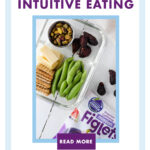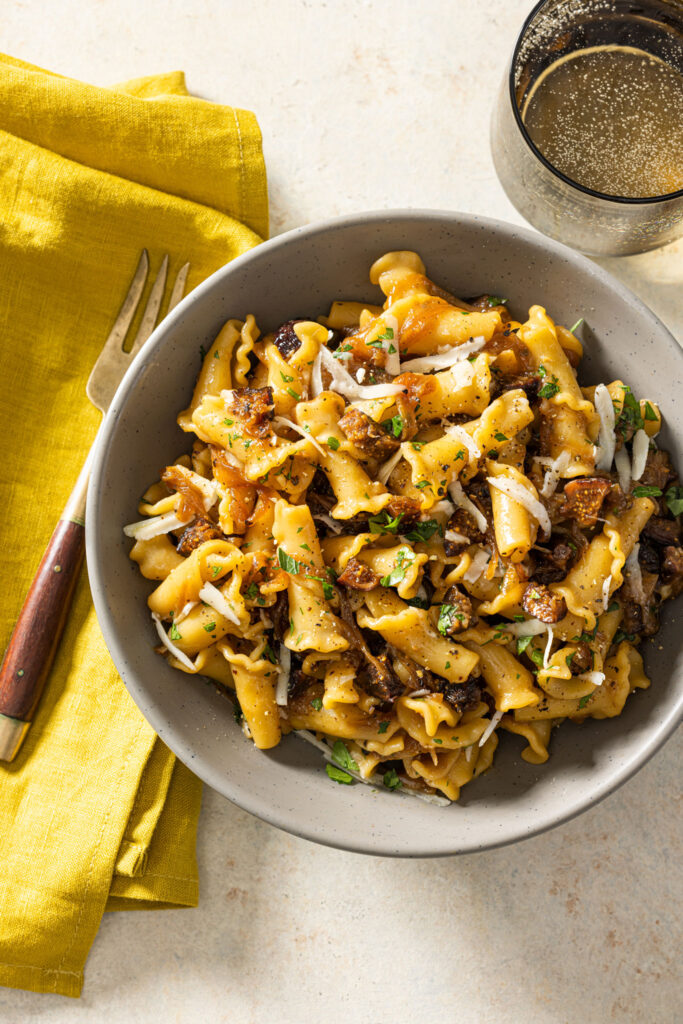What is intuitive eating? Intuitive Eating is a self-care eating framework founded by Registered Dietitians Evelyn Tribole and Elyse Resch. Their book Intuitive Eating was first published in 1995, and is currently on its 4th edition. Intuitive Eating (IE) was born as a framework to help individuals improve their relationship to food and quit dieting for good and it has since become an evidence-based, mind-body, anti-diet approach to food and health.

The 10 Principles
IE encourages the individual to honor the physical and psychological needs of their body and ultimately their health through 10 principles.
- Reject the Diet Mentality
The first principle encourages you to unsubscribe from harmful diet influences, and to get angry at diet culture that perpetuates false hope every time it introduces a new diet or weight loss plan. - Honor Your Hunger
Honoring your hunger means learning to listen to your body’s biological cues, keeping it adequately fed, and developing trust in yourself and food. - Make Peace with Food
By making peace with food, you work on letting go of rules and restrictions around food, and give yourself unconditional permission to eat without feelings of guilt, shame, or judgment. - Challenge the Food Police
Challenging the “food police” means challenging the internal voice that tells you you’re being “good” by eating salad or “bad” by eating cake and encourages a more neutral approach to eating. - Discover the Satisfaction Factor
This principle highlights the important role that satisfaction plays in the eating experience. Satisfaction can be discovered by eating more mindfully, eating foods you truly enjoy, and eating in pleasant environments. - Feel Your Fullness
Similar to honoring hunger, we need to feel and embrace fullness. When eating, try to tune into the signals that tell you you’re no longer hungry, and that you’re ready to stop eating. - Cope with Your Emotions with Kindness
It is important to discover ways to cope with emotions outside of food. Food can provide a sense of comfort, but it won’t fix your feelings. Find kind ways to address and resolve your difficult emotions. - Respect Your Body
All bodies deserve respect and dignity, and it’s hard to truly reject dieting if you are overly harsh or critical towards your own body. Treat it – and speak to it – with the respect it deserves. - Movement – Feel the Difference
Stop exercising solely to burn calories or change your body, and start moving in a way that brings you feelings like joy, energy, and strength. - Honor Your Health – Gentle Nutrition
Gentle nutrition acknowledges the importance of nutrition, but accepts that there is no “perfect” way to eat for anyone.
Misconceptions about Intuitive Eating
As it has gained popularity, so have the differing ideas of what it means to eat intuitively.
To clarify, IE is not a weight loss method, rather it is a weight-neutral framework. Meaning, weight is not an outcome of focus, nor is any specific weight-related outcome guaranteed. When practicing intuitive eating, some individuals may gain weight, some may lose weight, and some may see no change.
Contrary to other beliefs, IE is also not just “eating whatever you want” or eating “junk” food all of the time. As per the principles, intuitive eating also takes into account tuning in to your body’s needs, eating more mindfully, and gentle nutrition.

How to Practice Gentle Nutrition
A gentle approach to nutrition is one that recognizes the importance of eating foods that make you feel good physically and foods that satisfy your cravings. It encourages balance, and focuses on what you can add to your plate, rather than what you need to cut out
For example, anticipating that you’ll need a snack in the afternoon so you pack one that you know will keep you full is an example of gentle nutrition. Choosing a serving of 4 figs per day because they are delicious and offer a variety of important nutrients like fiber, potassium, magnesium, and calcium is another.
Maybe you’re in the mood for something sweet, so you pair Orchard Choice and Sun-Maid California Dried Figs with nuts and chocolate. Or if you want savory, cheese and crackers. Focusing on what you can add to your meals and snacks for pleasure, satisfaction and nourishment is the key to gentle nutrition.





